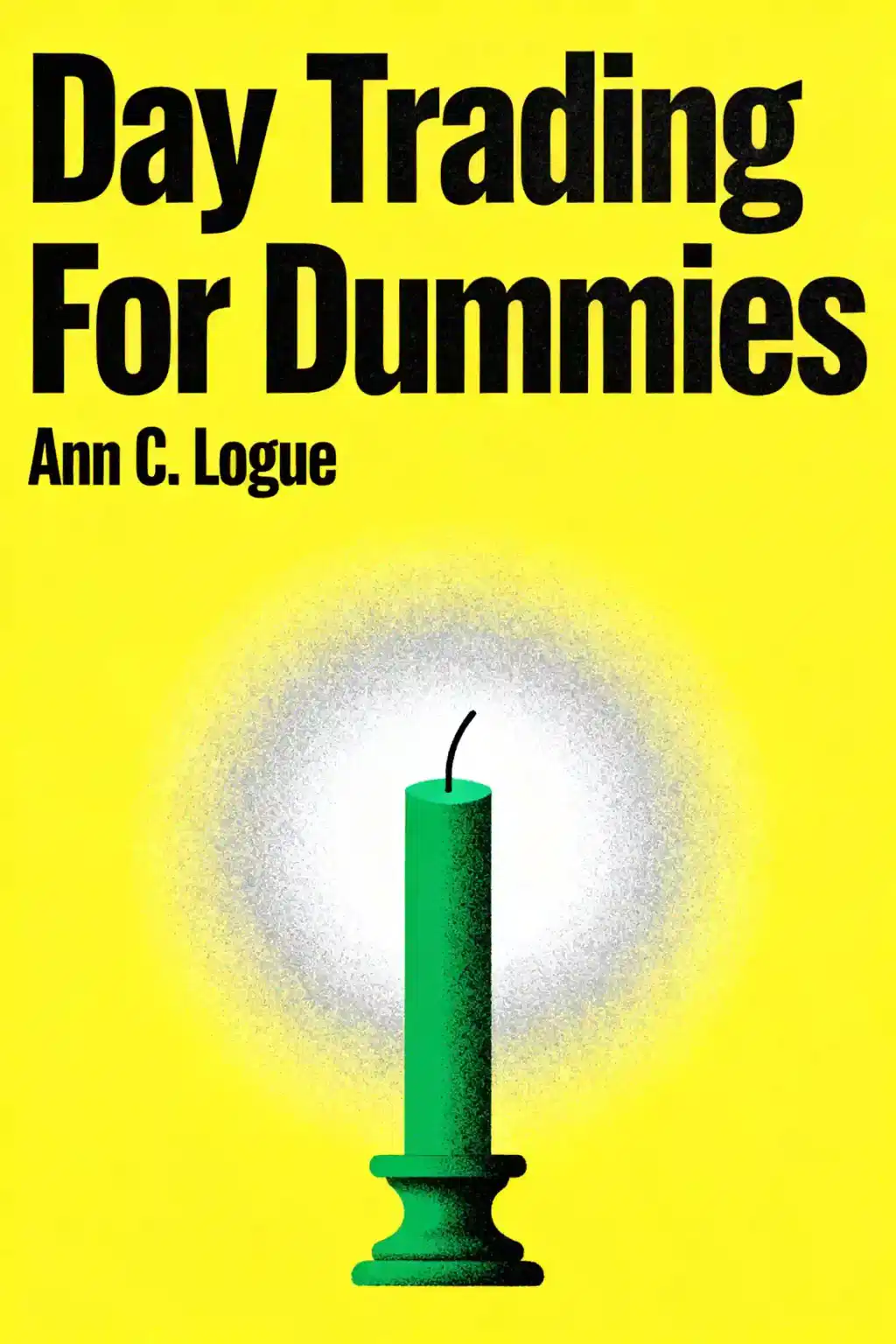What is Day Trading For Dummies about?
Day Trading For Dummies by Ann C. Logue is a comprehensive guide to fast-paced, short-term stock market trading that teaches readers how to profit from daily price movements. The book covers fundamental concepts like how markets work, reading price patterns, and minimizing losses, while also addressing modern topics including cryptocurrency trading, AI-powered strategies, and meme stocks. It provides a complete roadmap from basic market mechanics to advanced technical analysis and business setup.
Who is Ann C. Logue and why is she qualified to write Day Trading For Dummies?
Ann C. Logue is an expert financial author who specializes in making complex trading concepts accessible to everyday investors. She has established herself as a trusted voice in investment education through multiple editions of Day Trading For Dummies, consistently updating the content to reflect evolving market conditions. Her approach combines practical trading techniques with risk management principles, helping beginning to intermediate traders navigate the fast-paced world of day trading.
Who should read Day Trading For Dummies?
Day Trading For Dummies is designed for beginning to intermediate investors who want to explore short-term trading for income generation. The book suits readers seeking a jargon-free introduction to day trading concepts, those curious about whether day trading matches their financial goals, and traders wanting to update their knowledge on cryptocurrency, AI trading tools, and commission-free platforms. It's ideal for anyone with basic market understanding who wants to develop a strategic day trading plan.
Is Day Trading For Dummies worth reading in 2025?
Day Trading For Dummies remains highly relevant because it covers contemporary trading developments like AI-powered strategies, cryptocurrency markets, and commission-free trading platforms. The latest edition addresses meme stocks, FOMO risk, and GameStop-style market phenomena that define modern trading. Beyond trend-chasing, the book provides timeless fundamentals on technical analysis, money management, and emotional discipline that remain essential for successful day trading regardless of market conditions.
What key day trading strategies does Day Trading For Dummies teach?
Day Trading For Dummies covers both classic and innovative trading strategies including technical analysis patterns, market indicator interpretation, and program trading systems. The book explains position sizing methods like the Kelly criterion and Optimal F to maximize gains while limiting losses. Readers learn channel identification techniques, trend analysis, and how to establish entry and exit points based on price movements and volume data.
Does Day Trading For Dummies explain cryptocurrency and meme stock trading?
Day Trading For Dummies provides expanded coverage on cryptocurrency trading, explaining how digital assets fit into day trading portfolios. The book specifically addresses the GameStop saga and other meme stocks that captivated financial markets, including protective strategies to avoid scams and FOMO (fear of missing out) risks. Ann C. Logue guides readers through the unique volatility and 24/7 trading nature of crypto markets alongside traditional asset classes.
How does Day Trading For Dummies approach technical analysis?
Day Trading For Dummies teaches technical analysis as the foundation of day trading, based on the principle that security prices follow recognizable trends that repeat over time. The book covers chart pattern identification, connecting peaks and troughs to form price channels, and using historical market data to forecast future movements. Readers learn to analyze price data and trade volumes to spot market shifts and profitable opportunities through various technical indicators.
What risk management techniques does Day Trading For Dummies recommend?
Day Trading For Dummies emphasizes strict discipline in managing borrowed capital and position sizing to minimize catastrophic losses. The book covers leverage considerations, including borrowing costs, margin call requirements, and short-selling regulations. Ann C. Logue explains how traders can enhance profit chances while limiting downside risk by using mathematical position sizing formulas and maintaining appropriate capital reserves for market volatility.
What does Day Trading For Dummies say about taxes and business structure?
Day Trading For Dummies dedicates an entire chapter to tax implications for day traders, providing tips to minimize tax bills at year-end. The book guides readers through establishing day trading as a legitimate business, covering regulatory compliance, record-keeping requirements, and business structuring options. Readers learn how professional setup affects tax treatment and the importance of understanding fiscal responsibilities beyond simple trade execution.
How does Day Trading For Dummies address AI and automated trading?
Day Trading For Dummies explores artificial intelligence as a potential equalizer between individual traders and major financial firms. The book examines program trading systems that eliminate emotional decision-making and execute trades based on predetermined algorithms. Ann C. Logue discusses both the opportunities AI presents for identifying market inefficiencies and the possibility that AI could eventually eliminate those same inefficiencies that day traders depend on.
What are common mistakes Day Trading For Dummies warns against?
Day Trading For Dummies includes a dedicated chapter on ten common day trading mistakes that cost traders money. The book emphasizes the danger of trading emotionally rather than systematically, overleveraging positions, and failing to conduct essential research before executing trades. Ann C. Logue warns against the zero-sum nature of certain markets where one trader's profit directly equals another's loss, highlighting the competitive environment traders face.
How does Day Trading For Dummies help beginners decide if day trading is right for them?
Day Trading For Dummies provides balanced perspectives through chapters covering both "Ten Good Reasons to Day Trade" and "Ten Good Reasons to Avoid Day Trading". The book honestly addresses the significant time commitment, capital requirements, and psychological demands of day trading. Ann C. Logue helps readers assess whether their risk tolerance, available resources, and personality traits align with the fast-paced, sometimes risky nature of day trading as an income strategy.














